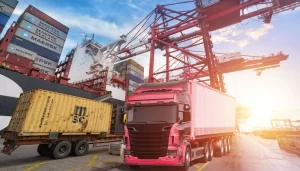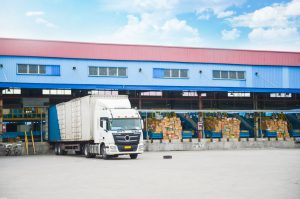BLOG
How Can International Logistics Companies Navigate the Changes in the World Trade Landscape?
- wanmeili
- 2023-07-03
As the global economy continues to evolve and new trade agreements are being forged, international logistics companies are facing significant challenges in navigating the changes in the world trade landscape. From the rapid rise of e-commerce to the increasing complexities of customs regulations, these companies must adapt to meet the demands of a shifting global market. With the ongoing impacts of great power competition and geopolitical tensions, it has become more crucial than ever for logistics companies to develop effective strategies that allow them to thrive in this new era of international trade. In this blog post, we will discuss the universal ways to deal with changes in the world trade situation and Chinese logistics companies’ specific reacting ways.
Universal implementing strategies
Diversify their portfolio:
Companies can explore new markets and sectors to reduce dependency on a single region or industry. This helps mitigate risks associated with sudden policy changes or economic downturns in specific countries.
Collaborate with local partners:
Building strong relationships with local partners, such as customs brokers, freight forwarders, and warehouses, can help navigate complex trade regulations, customs procedures, and cultural differences in different countries. Local partners provide valuable insights and expertise in navigating the local trade landscape.
Stay updated on trade regulations:
It is essential for logistics companies to closely monitor changes in international trade regulations, tariffs, and trade agreements. By staying informed, companies can proactively adapt their strategies, identify opportunities, and ensure compliance with trade laws.
Enhance supply chain visibility and flexibility:
Companies should invest in technologies and systems that provide real-time tracking, visibility, and analytics across their supply chains. This enables proactive decision-making and strategic adjustments in response to changes in trade situations, such as rerouting shipments, changing suppliers, or altering shipping modes.
Foster strong relationships with customers and suppliers:
Building strong relationships with customers and suppliers is crucial in times of trade uncertainties. Maintaining open lines of communication, understanding their unique needs, and working collaboratively to find solutions can help companies navigate challenges and maintain business continuity.
Strengthen risk management capabilities:
International logistics companies should invest in robust risk management practices, including scenario planning and stress testing. Assessing the potential impact of trade disruptions, currency fluctuations, or geopolitical events can help companies develop contingency plans and minimize potential disruptions.
Embrace digitalization:
Adopting digital technologies, such as cloud-based platforms, automation, and artificial intelligence, can streamline operations, improve efficiency, and reduce costs. Digitalization enables faster and more accurate information exchange, enhances collaboration, and provides insights for strategic decision-making.
Invest in talent development:
Companies should invest in training and development programs to equip their employees with the necessary skills and knowledge to adapt to changing trade situations. This includes understanding global trade dynamics, cultural awareness, language proficiency, and regulatory expertise.
China’s local insights to Response
With the passage of time, the trade dispute between China and the United States has been 5 years from 2018 to now. Although the trade relationship between China and the United States is so close, after 5 years of trade disputes, the world’s trade environment and pattern has undergone great changes. The United States is more focused on transferring manufacturers, suppliers, and manufacturing equipment to friendly-with countries and neighboring countries, which is the so-called nearshoring outsourcing and friendshoring outsourcing. China’s trade expansion is more dependent on the markets in Southeast Asia, South America, and the Middle East. The trade pattern in which China is the world’s factory and supplies products to the world will change. As a logistics service provider, how should we respond to this change?
China has a comprehensive supply chain system, and China’s export volume will not decline rapidly in the short term. First-quarter 2023 data was not very optimistic. This was mainly due to weak demand in Europe and the US. That weakness led to a shrinking of international trade. However, China’s future growth markets will be different. The main incremental markets are Southeast Asia, South America, and the Middle East/North Africa. We need to increase investment in these three markets. We must also pay attention to each market’s unique characteristics.
Southeast Asian market
The Southeast Asian market has a stable political relationship with China. It also has a large population and relatively low labor costs. The Sino-US trade dispute affected Chinese manufacturing. Several industries have shifted their operations to Southeast Asia. From there, they sell products globally or import them back to China. Therefore, growth in this market is multidimensional. It is not just in traditional Chinese exports to the region. It also includes Southeast Asia’s imports into China. Furthermore, it includes Southeast Asia’s exports to the rest of the world. Logistics, as the service end of trade, should also keep up with the changes in trade. Therefore, we will provide more mature logistics services in the Southeast Asian market and increase capital investment in Southeast Asia.
South American market
In the South American market, the trade between China and South America is highly complementary. The current regional organization Mercosur plays a role in South America, and the member states are exempt from tariffs (Brazil, Argentina, Uruguay, Paraguay,), and the regional organization Mercosur is an observer member There are many countries, and the South American market has great potential in the future, but the common languages in the South American market are mainly Spanish and Portuguese. In the future, we will become a Chinese logistics provider that can communicate in Spanish and Portuguese.
Middle East and North African market
The Middle East and North African market has strong demand, but the supply is relatively poor. Egypt has a large population base, the Algeria market is constantly opening up, and the huge Saudi market has a very large room for growth. We will set up an office in Dubai to deal with the Middle East For business with North Africa, colleagues in Dubai are also welcome to cooperate with us.
Overall, international logistics companies need to be agile, adaptable, and proactive in response to changes in the world trade situation. By diversifying, collaborating, staying informed, enhancing visibility, managing risks, and embracing digitalization, companies can navigate the evolving trade landscape and continue to meet customer needs effectively.
Related Posts



